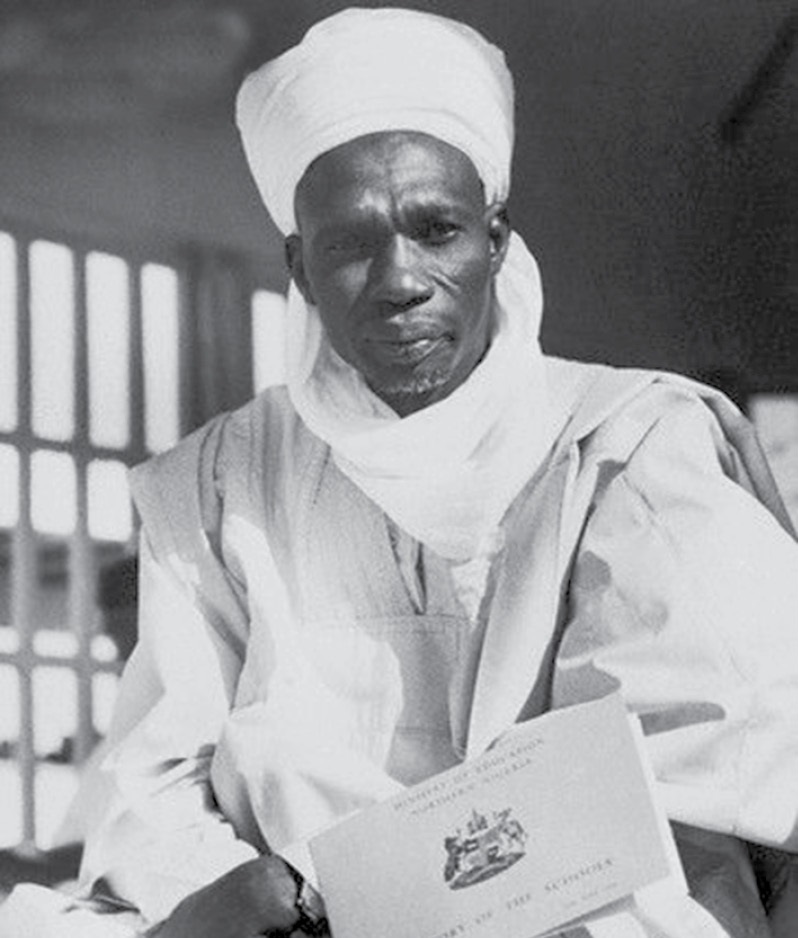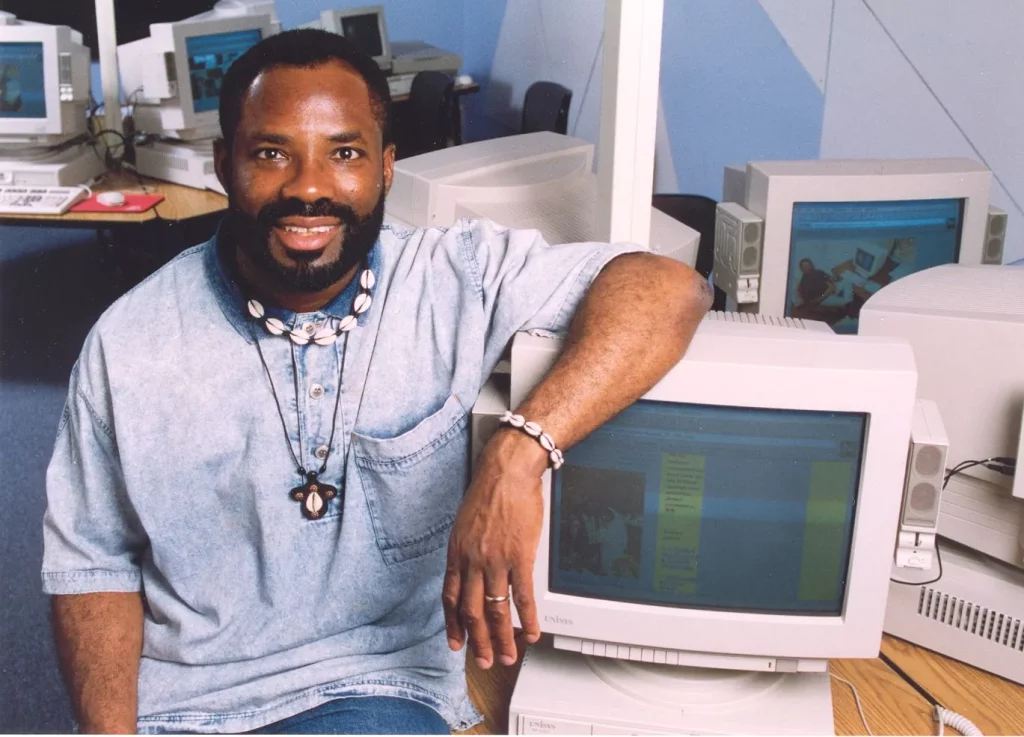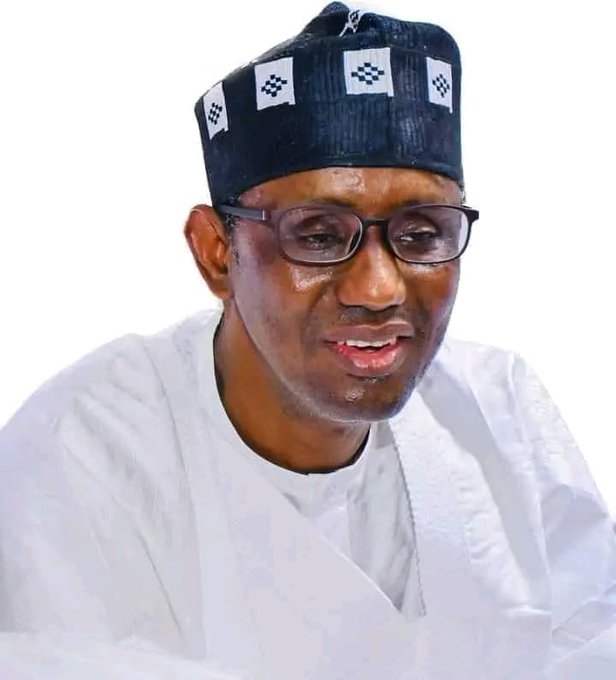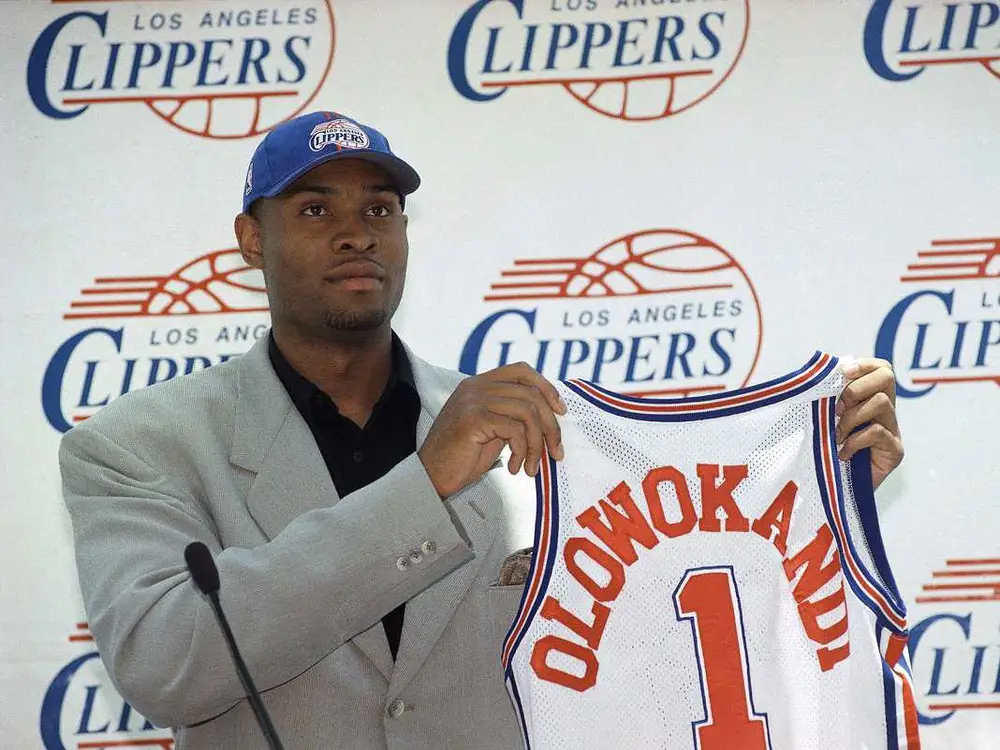Nigeria’s Diverse Achievers: Balewa, Emeagwali, Ribadu, Adichie, Olowokandi
Abubakar Tafawa Balewa (1912 – 1966) was a prominent Nigerian politician and the first Prime Minister of Nigeria. His contributions to the struggle for Nigerian independence and his role in shaping the early post-colonial government are significant. Here is an overview of Abubakar Tafawa Balewa’s history, role in Nigeria’s independence, and his legacy:
- Early Life and Education:
- Abubakar Tafawa Balewa was born in December 1912 in Bauchi, Northern Nigeria.
- He received his education at the Katsina Teacher Training College and later attended the University of London’s Institute of Education.
- Teaching Career:
- Balewa worked as a teacher and later as an education administrator in various capacities before entering politics.
- Political Career:
- Balewa became involved in politics during the colonial period. He joined the Northern People’s Congress (NPC), a political party that primarily represented the interests of the Northern region.
- He served in various capacities, including as a member of the Northern Regional House of Assembly and later as the Chief Minister of the Northern Region.
- Role in Independence:
- Tafawa Balewa played a crucial role in the negotiations for Nigeria’s independence from British colonial rule.
- As the leader of the NPC, he was involved in constitutional conferences leading to the establishment of a federal system of government for an independent Nigeria.
- Nigeria gained independence on October 1, 1960, with Tafawa Balewa becoming the country’s first Prime Minister.

- Prime Ministership:
- As Prime Minister, Balewa led Nigeria through its early years as an independent nation. He faced challenges such as ethnic and regional tensions, economic issues, and the balancing of diverse interests within the country.
- Legacy and Leadership Style:
- Tafawa Balewa was known for his calm and conciliatory leadership style. He advocated for unity and worked towards maintaining a balance between the various regions and ethnic groups within Nigeria.
- His leadership was characterized by a commitment to democracy and a desire to build a united and prosperous Nigeria.
- Death and Aftermath:
- Tragically, Abubakar Tafawa Balewa’s tenure as Prime Minister was cut short. He was overthrown in a military coup on January 15, 1966.
- Balewa, along with other political leaders, was initially arrested. However, he was later killed under mysterious circumstances during the coup.
- Posthumous Honors:
- Abubakar Tafawa Balewa has been honored posthumously for his contributions to Nigeria’s independence and early leadership. There are several monuments and institutions named after him.
Abubakar Tafawa Balewa’s legacy is that of a statesman who played a pivotal role in Nigeria’s struggle for independence and early post-colonial governance. Despite the challenges faced during his leadership, he remains an important figure in Nigerian history.
Philip Emeagwali: Nigerian Supercomputing Contributor

Philip Emeagwali is a Nigerian-born computer scientist and engineer who gained prominence for his contributions to the development of supercomputing. Here are some key points about Philip Emeagwali:
- Early Life and Education:
- Philip Emeagwali was born on August 23, 1954, in Akure, Nigeria.
- He showed an early interest in mathematics and studied engineering at the University of Michigan and later at George Washington University.
- Parallel Processing and Supercomputing:
- Emeagwali is best known for his work on parallel processing, which involves the simultaneous execution of multiple calculations. He applied this concept to create a supercomputer that could perform complex computations at an unprecedented speed.
- Connection Machine and Computational Fluid Dynamics:
- Emeagwali’s breakthrough came in the 1980s when he used a Connection Machine, a type of supercomputer, to simulate oil reservoirs. His work focused on computational fluid dynamics to model the movement of petroleum reservoirs, helping in the efficient extraction of oil.
- Recognition and Awards:
- In 1989, Philip Emeagwali was awarded the Gordon Bell Prize for his use of a supercomputer to solve a complex problem in the field of petroleum reservoir modeling. This prize is considered the Nobel Prize of computing.
- Impact on Science and Technology:
- Emeagwali’s contributions to the field of supercomputing have had a lasting impact on the way large-scale computations are performed. His work has applications in various fields, including weather forecasting, scientific research, and petroleum exploration.
- Philanthropy and Advocacy:
- Emeagwali has been involved in philanthropic and advocacy activities, especially in promoting science and technology education in Africa. He emphasizes the importance of technological innovation for the development of the continent.

- Author and Speaker:
- Emeagwali has written articles and delivered lectures on topics related to supercomputing, technology, and Africa’s role in the technological revolution.
- Legacy:
- Philip Emeagwali is considered one of the pioneers in the field of supercomputing. His work has contributed to advancing computational capabilities and has opened new possibilities in scientific and engineering research.
Philip Emeagwali’s contributions to supercomputing have earned him recognition and accolades in the field of computer science. His achievements highlight the potential for groundbreaking innovation from individuals in various parts of the world.
Nuhu Ribadu: Nigerian Pioneer, Lawyer, Police Officer, Anti-Corruption Crusader

Mallam Nuhu Ribadu is a Nigerian lawyer, police officer, and former government official known for his role in anti-corruption efforts in Nigeria. Here are some key points about Mallam Nuhu Ribadu:
- Early Life and Education:
- Mallam Nuhu Ribadu was born on November 21, 1960, in Yola, Adamawa State, Nigeria.
- He holds a law degree from Ahmadu Bello University, Zaria, and was called to the Nigerian Bar in 1983.
- Law Enforcement Career:
- Ribadu began his career in law enforcement and served in various capacities within the Nigerian Police Force.
- He gained prominence for his work as the head of the Economic and Financial Crimes Commission (EFCC), an anti-corruption agency established in 2003.
- Anti-Corruption Efforts:
- As the pioneer chairman of the EFCC, Ribadu played a key role in investigating and prosecuting cases of corruption, financial crimes, and money laundering.
- Under his leadership, the EFCC achieved significant successes in the investigation and prosecution of high-profile individuals, including politicians and business figures.
- Challenges and Controversies:
- Ribadu faced challenges and controversies during his tenure at the EFCC, including political pressure and attempts to compromise the agency’s independence.

- Presidential Candidate:
- In 2011, Nuhu Ribadu ran for the position of the President of Nigeria as the candidate of the Action Congress of Nigeria (ACN) but did not emerge victorious.
- Return to Public Service:
- Ribadu has been involved in various public service roles. In 2015, he was appointed as the chairman of the Presidential Advisory Committee on Anti-Corruption by President Muhammadu Buhari.
- Academic Pursuits:
- Mallam Nuhu Ribadu has also been involved in academic pursuits, including teaching at institutions such as Ahmadu Bello University.
- Global Recognition:
- Ribadu’s efforts in the fight against corruption have been internationally recognized. In 2009, he was awarded the Integrity Award by Transparency International.
Mallam Nuhu Ribadu’s work in the field of anti-corruption has made a significant impact on Nigeria’s governance and accountability. His dedication to combating corruption and financial crimes has earned him both praise and criticism, reflecting the challenges inherent in such endeavors within complex political landscapes.
Chimamanda Ngozi Adichie: Nigerian Feminist Author

Chimamanda Ngozi Adichie is a highly acclaimed Nigerian author and feminist. Born on September 15, 1977, in Enugu, Nigeria, she has gained international recognition for her novels, essays, and speeches that address themes such as identity, feminism, and the complexities of post-colonial African societies. Here are some key points about Chimamanda Ngozi Adichie:
- Early Life and Education:
- Chimamanda Ngozi Adichie grew up in Nsukka, a university town in southeastern Nigeria, where her parents worked at the University of Nigeria.
- She studied communication and political science at Drexel University in Philadelphia, USA, before completing a master’s degree in creative writing at Johns Hopkins University.
- Literary Career:
- Adichie gained widespread recognition with her debut novel, “Purple Hibiscus” (2003), which won the Commonwealth Writers’ Prize for Best First Book (Africa Region).
- Her second novel, “Half of a Yellow Sun” (2006), is set during the Nigerian Civil War (Biafran War) and received the Orange Prize for Fiction.
- Other Notable Works:
- “Half of a Yellow Sun” was adapted into a film in 2013. Adichie’s other notable works include “Americanah” (2013), a novel exploring race and identity, and “We Should All Be Feminists” (2014), a TEDx talk adapted into a book that advocates for gender equality.
- Feminism and Activism:
- Chimamanda Ngozi Adichie is a vocal advocate for gender equality and feminism. Her writings often address issues related to women’s rights, social justice, and the impact of gender roles.
- She coined the term “We Should All Be Feminists,” which has become a rallying cry for the global feminist movement.

- Awards and Recognition:
- Adichie has received numerous awards for her literary contributions, including the National Book Critics Circle Award for Fiction and the Women’s Prize for Fiction for “Half of a Yellow Sun.”
- In 2008, she was awarded a MacArthur Fellowship, commonly known as a “Genius Grant.”
- Educational Initiatives:
- Adichie is involved in educational initiatives and has given talks at universities and institutions around the world. She has also delivered speeches at prominent events, including the United Nations and TED Talks.
- Global Influence:
- Chimamanda Ngozi Adichie’s influence extends beyond literature, and she is regarded as one of the most prominent contemporary African writers. Her work has resonated globally, and she has been invited to speak on various platforms to address important social and cultural issues.
Chimamanda Ngozi Adichie’s impact on literature and advocacy for gender equality has made her a leading figure in contemporary Nigerian and African culture. Her insightful and thought-provoking writings continue to inspire readers worldwide.
Michael Olowokandi: Nigerian Basketball Star

Michael Olowokandi is a retired Nigerian-British professional basketball player who played in the National Basketball Association (NBA). Here are some key points about Michael Olowokandi:
- Early Life:
- Michael Olowokandi was born on April 3, 1975, in Lagos, Nigeria.
- He moved to London at a young age and later attended the University of the Pacific in the United States, where he played college basketball.
- College Career:
- Olowokandi played college basketball for the University of the Pacific from 1995 to 1998. He made a significant impact during his college years and gained attention for his shot-blocking and rebounding abilities.
- NBA Draft:
- Michael Olowokandi was the first overall pick in the 1998 NBA Draft. The Los Angeles Clippers selected him as the top pick.
- NBA Career:
- Olowokandi played in the NBA for several teams during his career, including the Los Angeles Clippers (1998–2002), Minnesota Timberwolves (2002–2003), and Boston Celtics (2003–2004).
- Despite being the first overall pick, Olowokandi’s NBA career did not match the high expectations associated with his draft position. He faced challenges, including injuries, and did not achieve the level of success anticipated.
- Retirement:
- Michael Olowokandi retired from professional basketball after the 2006-2007 season.
- Post-Basketball:
- After retiring from basketball, Olowokandi has kept a relatively low profile, and there is limited public information about his activities after his playing career.
Michael Olowokandi’s NBA career is often associated with the high expectations placed on him as the first overall draft pick. While his professional career may not have lived up to those expectations, he remains part of NBA history as a top draft pick from the 1998 class.
Related Reading Nigeria’s Political Icons: Awolowo, Bello, Azikiwe, Abacha, and Gowon

